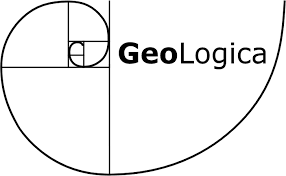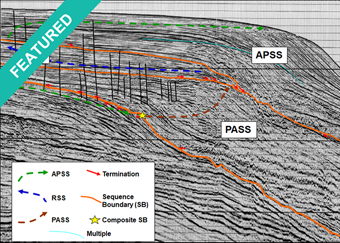
Predictive Sequence Stratigraphy

Date: 17 - 21 October
Tutor: Vitor Abreu: President, ACT-Geoscience; Adjunct Professor, Rice University
- Learn the basic terminology of sequence stratigraphy.
- Compare and contrast the various approaches to sequence stratigraphy.
- Apply the concepts of facies, facies stacking and shoreline trajectory.
- Evaluate the main controls on depositional sequences.
- Assess and interpret cores, well logs and seismic lines.
- Apply chronostratigraphic techniques.
Overview
The application of sequence stratigraphy allows for the geologic interpretation of core, well log, seismic and outcrop data to predict play elements, presence and quality before drilling. This course introduces sequence stratigraphy and presents workflows to describe, correlate and map strata. The terminology of surfaces, systems tracts, sequence sets and stratigraphic hierarchy will be described and then applied to subsurface data exercises in non-marine, shallow marine and deep marine depositional settings. The emphasis will be on the recognition and mapping of play elements from exploration to production scales.
Duration and Logistics
Ten 3-hour interactive online sessions presented over 5 days (mornings and afternoons in North America). A digital manual and hard-copy exercise materials will be distributed to participants before the course. Some reading and several exercises are to be completed by participants off-line.
Level and Audience
Fundamental. This course is intended for geoscientists (reservoir modelers, seismic interpreters, sedimentologists), reservoir engineers and petrophysicists who want to understand and apply the concepts of sequence stratigraphy.
Embedding Environmental Social Governance in Mineral Project Evaluation: a Guide for Geoscientists

Date: 27 - 29 September
Tutor: Ben Lepley, SRK Consulting
Overview
This course is designed for geoscientists in the exploration and mining industry to help navigate the environmental, social and governance (ESG) labyrinth and embed ESG good practice across all stages of mineral project evaluation from discovery to decommissioning and beyond.
Duration and Logistics
Three, 3.5-hour interactive online sessions presented over 3 days (mornings in North America and afternoons in Europe). A digital manual and exercise materials will be distributed to participants before the course.
Level and Audience
Intermediate. The course is designed for mining industry professionals who wish to understand the ESG standards, initiatives and legal conventions.
Induced Seismicity

Date: 04 - 06 October
Tutor: Ben Edwards: Professor at the University of Liverpool
Overview
This course will provide participants with a broad understanding of induced seismicity, a phenomenon which has led to significant impacts on a variety of industrial projects worldwide, from geo-energy to CCS. The course will cover a range of fundamental topics: from the basic physical mechanism of induced seismicity, through to the application of monitoring and detection strategies, and subsequent location and magnitude determination. These topics will be covered within the context of regulatory factors, such as ‘traffic light systems’. Finally, we will review the hazard and risk posed by induced seismicity and methods used to determine this, covering topics such as intensity measures, ground motion attenuation, and local amplification effects in the near surface.
Duration and Logistics
Three 3.5-hour interactive online sessions presented over three days (mornings in North America and afternoons in Europe). Digital course notes and exercise materials will be distributed to participants before the course. Some exercises may be completed by participants off-line.
Level and Audience
Intermediate. The course is largely aimed at geoscientists and engineers who are working on subsurface projects where an understanding of induced seismicity is required. However, the broad range of topics make the course widely accessible to any science-based profession.
Developing and Delivering a Geothermal Energy Project Business Model

Date: 10 - 13 October
Tutor: David Townsend: CEO of TownRock Energy
Overview
This course covers all aspects of how to develop and deliver a geothermal project business case from the fundamentals of what a geothermal resource can offer through to financing and raising funds. The course will explore a variety of geothermal resource types and current UK-based project examples.
Duration and Logistics
Four 3.5-hour interactive online sessions presented over four days (mornings in North America and afternoons in Europe). Digital course notes and exercise materials will be distributed to participants before the course.
Level and Audience
Fundamental/Intermediate. The course is aimed at consultants, developers and regulators looking to understand the business elements of geothermal developments, as well as individuals involved in local government looking for an overview of geothermal projects.
Subsurface Context for a GeoEnergy Transition

Date: 17 - 21 October
Tutors:
- Convenor: Alistair Donohew: Director, Kovia Consulting Ltd.
- Climate: John Pyle: Professor of Atmospheric Chemistry, University of Cambridge.
- CCS: Richard Worden: Professor of Earth Ocean and Ecological Sciences, University of Liverpool; Director of Geochem Research Ltd.
- Geothermal: Mark Ireland: Lecturer in Energy Geoscience, Newcastle University.
- Critical Minerals: Lucy Crane: Senior Geologist, Cornish Lithium Ltd.
- Socio-economic: Mark Hammond: Visiting Professor in Public Policy, Canterbury Christ Church University.
Overview
A course summarising the key issues of the GeoEnergy Transition, including climate science, carbon capture and storage, geothermal, critical minerals and the associated socio-economic context and challenges.
Duration and Logistics
Five 3.5-hour interactive online sessions (mornings in North America and afternoons in Europe). Each session is taught by a different tutor, with all being convened and facilitated by Alistair Donohew. Digital course notes and exercise materials will be distributed to participants before the course.
Level and Audience
Fundamental. Intended for a wide range of individuals who want to develop a broad understanding of the energy transition and underlying scientific principles from a geoscience perspective. Primarily aimed at a technical audience with backgrounds in geoscience and subsurface disciplines (e.g. civil and mining engineers, geographers and hydrologists) but will provide anyone with a basic knowledge of the earth sciences a valuable introduction into the key topics and issues associated with the energy transition. The subject matter will be covered from basic principles and would therefore also be of interest to policy makers, investors, consultants and related businesses with a stake in the low carbon transition.
The Fundamentals of Geothermal Systems: Low to High Enthalpy, Geohazards and Environmental Aspects

Date: 31 October - 03 November
Tutor: Greg Samways: Director at GeoLumina
Overview
This course will focus on a simple petrophysical workflow entailing the determination of rock properties from conventional logs and core analysis data. Lithology, porosity, permeability and saturations will be determined using a variety of different analytical and simple modelling methods. Emphasis will be placed on understanding the importance of calibration, integration, and validation of the results of each method, based on a fundamental understanding of the geological controls on petrophysical properties.
Duration and Logistics
Five, 3.5-hour interactive online sessions presented over 5 days (mornings in North America and afternoons in Europe). The course will focus on problem-solving using real-world data and use a series of Excel workbooks. A digital manual and exercise materials will be distributed to participants before the course.
Level and Audience
Fundamental. This course is intended for non-petrophysicists who require a grounding in the petrophysical determination of lithology, porosity and saturation from conventional and special core analysis, and conventional open-hole logs.
Geomechanics for Unconventional Developments

Date: 07 - 11 November
Tutor: Greg Samways: Director at GeoLumina
Overview
This course will focus on a simple petrophysical workflow entailing the determination of rock properties from conventional logs and core analysis data. Lithology, porosity, permeability and saturations will be determined using a variety of different analytical and simple modelling methods. Emphasis will be placed on understanding the importance of calibration, integration, and validation of the results of each method, based on a fundamental understanding of the geological controls on petrophysical properties.
Duration and Logistics
Five, 3.5-hour interactive online sessions presented over 5 days (mornings in North America and afternoons in Europe). The course will focus on problem-solving using real-world data and use a series of Excel workbooks. A digital manual and exercise materials will be distributed to participants before the course.
Level and Audience
Fundamental. This course is intended for non-petrophysicists who require a grounding in the petrophysical determination of lithology, porosity and saturation from conventional and special core analysis, and conventional open-hole logs.
KeyFacts Energy Industry Directory: GeoLogica l KeyFacts Energy news: Training
 KEYFACT Energy
KEYFACT Energy